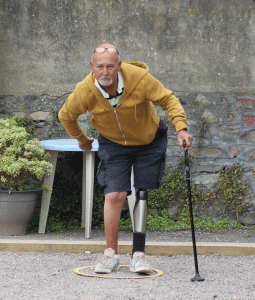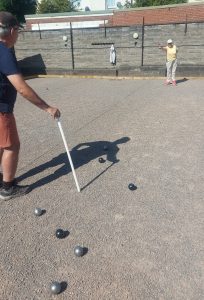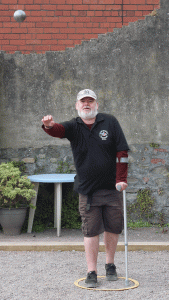What is Parapétanque? Simply, it is Disability plus Pétanque.
The WPA believes that pétanque it’s a sport open to everyone, promoting social connections across generations, embracing diversity, and fostering conviviality. Pétanque is not always recognised for its inclusivity, but it’s a game that accommodates disabilities effortlessly.


Many of our affiliated pétanque clubs actively promote inclusivity and welcome players with disabilities. The rules of pétanque can be adjusted to suit individual needs, allowing for modified throwing techniques or alternate ways to participate.
Pétanque is truly a sport for all, regardless of physical ability. Whether in a wheelchair, visually impaired, deaf, hard of hearing, or dealing with mental health challenges, playing pétanque is feasible. It is common to see mixed groups of able-bodied  and disabled players sharing the courts at many pétanque clubs. The rules and equipment are identical—whether you are throwing the boules or aiming for the jack, and inclusion is the game’s name!
and disabled players sharing the courts at many pétanque clubs. The rules and equipment are identical—whether you are throwing the boules or aiming for the jack, and inclusion is the game’s name!
Ultimately, deciding to play pétanque or engage in any physical activity should be based on your interests, abilities, and comfort level. It is always advisable to consult with your healthcare provider or a qualified professional to assess any potential risks or limitations before participating in a new activity.
The WPA is working with Disability Sports Wales to raise the profile of pétanque as a disability sport.

